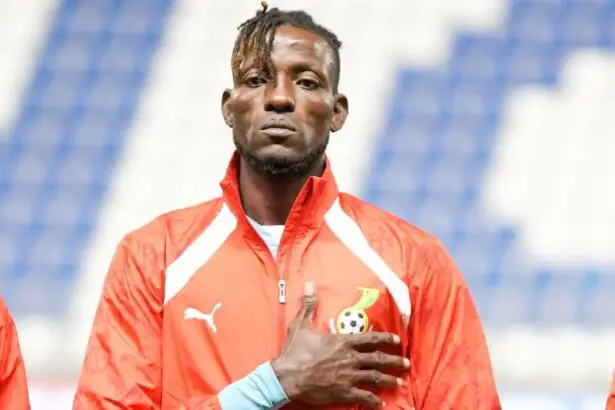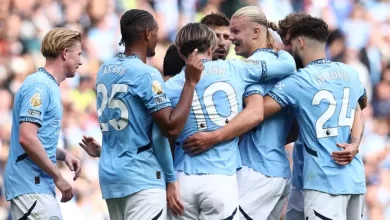
Benjamin Asare stood in the tunnel of the Accra Sports Stadium, the echoes of the crowd still ringing in his ears. At 32, he had just made his debut for the Black Stars, Ghana’s national football team, and what a debut it had been.
Two matches, two clean sheets—first a commanding 5-0 rout of Chad, then a hard-fought 3-0 victory over Madagascar in the 2026 World Cup qualifiers reflecting his consistent performance for Hearts of Oak in the ongoing season keeping 12 clean sheets in 24 games.
The headlines screamed his name, fans chanted his praises, and Coach Otto Addo had declared him the team’s first-choice goalkeeper. For a local player who had toiled through the Ghana Premier League with clubs like Great Olympics and now Hearts of Oak, this was the pinnacle of a dream long deferred.
But as the euphoria swirled around him, a quiet voice in his mind whispered a warning. This is only the beginning. Don’t rest now If I am to imagine.

The story of why Benjamin Asare should not grow complacent begins with his own journey. Years ago, a devastating knee injury had nearly ended his career. He had stepped away from football, taking up odd jobs to make ends meet, convinced his days between the posts were over.
It was only through the intervention of Richard Kingston, the legendary “Olele,” that he found his way back—rehabilitation, grit, and a second chance at Great Olympics.
That chapter of his life taught him a brutal lesson: success is fragile, and the game owes no one a favor. His recent exploits with the Black Stars were a triumph, yes, but they were also a fragile foothold on a steep climb.
The Chad match had been a breeze—Ghana dominated, and Asare barely broke a sweat. But Madagascar was different. They pressed harder, tested his reflexes with two sharp shots, and forced him to organize a defense under pressure.
He emerged unscathed, but it was a reminder that not every opponent would roll over so easily. The World Cup qualifiers were only six games in, and Ghana’s Group I lead, while strong at 15 points, was not unassailable.
Chad and Mali looming in September, and beyond that, the tournament’s global stage would pit him against the world’s best strikers—players who punish the slightest lapse in focus. Complacency now could mean disaster later.
To mention just a few local local based goalkeepers who easily lost their slots after debut senior call ups in recent times either through ‘poor’ decisions or unguarded complacencies—Richard Attah(Hearts of Oak at the time), Danlad Ibrahim (Asante Kotoko at the time), Felix Annan (Asante Kotoko at the time)
Back to Ben’s story. Then there was the weight of expectation. As a local player breaking into a squad often dominated by foreign-based stars, Asare had become a symbol of hope for Ghana’s domestic league. Fans and pundits alike saw his rise as proof that homegrown talent could shine.
But that spotlight brought pressure. Former goalkeeper Abukari Damba had called him “hungry to leave a mark,” and Dr. Nyaho Nyaho-Tamakloe had praised his case for local players. Yet, every dive, every save, would now be scrutinized.
A single mistake could shift the narrative—could give critics ammunition to question whether a local goalkeeper truly belonged at this level. Staying sharp wasn’t just about pride; it was about proving a point.
His coach’s words echoed too. Otto Addo had chosen him over Lawrence Ati-Zigi and Jojo Wollacott because he’d outshone them in training. “He trained very well,” Addo had said. That edge had earned him the jersey, but it was an edge he’d need to maintain.
The Black Stars’ goalkeeping stable was competitive—Zigi and Wollacott weren’t going anywhere, and they’d be eager to reclaim their spot. Asare knew from his days clawing his way up through lower-tier clubs that talent alone didn’t secure a place; consistency did. The double delights were a launchpad, not a throne.
Asare’s clean sheets had propelled the team closer to back-to-back World Cup appearance, but the road ahead is treacherous. Chad away would be a cauldron of heat and hostility, and Mali at home would demand every ounce of his focus.
Complacency could unravel not just his own dreams, but those of a country counting on him to stand tall. He remembered Annor Walker, the coach who’d first spotted him at Sporting Mirren, saying, “God’s time is the best.” This was his time—but only if he kept pushing.
Back in the tunnel, Asare adjusted his gloves, his mind racing. The cheers were sweet, the victories sweeter, but he couldn’t linger in their glow. He’d fought too hard, seen too much, to let this moment become his peak.
The Black Stars’ double delights were a chapter, not the story’s end. For Benjamin Asare, the real test was staying hungry—because in football, the fall comes fastest when you think you’ve already won.
He needs to stay consistent and play at top level of football. Decision making at this state is key as many tempting offers will come to the table and likely to be in a dilemma when the situation does comes.
The Hearts of Oak platform will continue to be a fertile ground for him and any move away to a lower step for economic reasons could cost his number one position in the Black Stars ahead of the World Cup next year.



